In the build up the FA Cup Final, Si Steers looks at the task facing the owners and management at Liverpool to turn the club around long term.
 This has been one of the strangest seasons in the illustrious history of Liverpool Football Club. Success in the cups has been diluted by a woeful league campaign. There have been so many ups and downs it is difficult to define exactly where we are in our overall progression.
This has been one of the strangest seasons in the illustrious history of Liverpool Football Club. Success in the cups has been diluted by a woeful league campaign. There have been so many ups and downs it is difficult to define exactly where we are in our overall progression.
To make a judgement about where we are, it is important to look at where we have come from, and where we want to be. Our success in the cups this season cannot hide our league performance; but they do give us enough signs that the green shoots of progress are evident. Perhaps the best way to judge where we are is by looking at it like this:
Where we have come from
In the last year of the Benitez era the club started in a downward spiral that was symptomatic of the ownership turmoil and politics that had engulfed the club.
The appointment of Hodgson was the white flag to progression. It was a clear sign that we were a club that was in reverse; we were going backwards at an alarming rate. The mediocrity of Hodgson and his signings confirmed that we were no longer looking to compete with the elite; we were happy to be hanging onto the coat tails and hope for the best.
By the time the ownership issues were resolved in October 2010, we were flirting alarmingly with the relegation places. On the pitch we were absolutely dire; our good players had been dragged down to the level of mediocrity that Hodgson was comfortable with.
(Whilst I wish Hodgson every success as the New England Manager; I fear that once again the expectation that comes with a big job will be too much for a man that is uncomfortable in a situation where winning every game is expected.)
I also think people underestimate the scale of internal turmoil. Structurally, the club was a complete mess. The poisonous reign of Christian Purslow created a culture of distrust and cliques throughout the club. To put it into context: in October 2010 Liverpool Football Club was on the brink of fading into oblivion. The digression had been rapid, and the rot had well and truly set in. To this day; I still believe some Liverpool fans do not grasp the seriousness of the situation the club was in during that time. The damage done by Hicks and Gillett cut deep at every single level.
 Recently in Liverpool there was an amazing street festival to mark 100 years of the Titanic. The Giant Sea Odyssey was a spectacular way to remember the City’s links to the doomed cruise liner. To translate that into what was happening at Liverpool FC: when FSG came into the club in October 2010 the club was heading towards an iceberg; it really was in danger of sinking into oblivion.
Recently in Liverpool there was an amazing street festival to mark 100 years of the Titanic. The Giant Sea Odyssey was a spectacular way to remember the City’s links to the doomed cruise liner. To translate that into what was happening at Liverpool FC: when FSG came into the club in October 2010 the club was heading towards an iceberg; it really was in danger of sinking into oblivion.
FSG had a duty to find a captain and crew that was going to turn that ship around; and they duly did so with the appointment of Comolli and Dalglish. The task wasn’t helped by Torres abandoning ship; albeit he is now on a lifeboat aimlessly drifting at sea.
Where we are
The critical task for Comolli and Dalglish was to turn the ship around; to pull it back from the brink and change direction. But make no mistake, Liverpool is a big ship. Turning it around has been a difficult task; and whilst we have changed direction: we have yet to set a new course.
The Liverpool journey was always going to look a little bit like this:
Digression >> Transition >> Progression
The key task for the club hierarchy was to steady the ship; and by and large that has been successfully achieved. If you look beyond the results in the league, everything around the club is now very much looking forwards. No longer do we have to sell to buy; or do we have the burden of huge debt. The club and dressing room are united. The entire atmosphere at the club has changed since those dark days of Hodgson.
But we are still at the very early stages of the transition; Comolli came in very quickly post sale and was given an opportunity to develop our football strategy. Footballing strategy is all about looking long term: making the decisions that will get the club back into the Champions League and beyond. The owners have a very clear plan and idea about how they want to see the club progress; and have decided that Comolli isn’t the right fit to implement that plan.
Whilst many were surprised at Comolli’s sudden exit; FSG obviously felt that his transitional appointment wasn’t the long term answer to defining our direction; he wasn’t the right man to take us forward.
Whether or not Kenny Dalglish will get another crack next season remains to be seen. There are far more complexities with the manager role than Comolli that I will come onto. But; there are very persuasive arguments either way that Dalglish has done enough to earn another season, or that the club would benefit from new ideas. I suspect many of these questions will be answered once a new Director of Football / CEO is in place.
Where we want to be
Where we want to be is simple. We want to be back in the Champions League. That is where the elite play; and from the FSG perspective, that is where the money is. The Champions League opens up so many doors: in terms of revenue, recruitment, and global appeal; every year we are not in the Champions League is a further setback to progress.
That is why next year everything has to be about Champions League qualification. It has to be the club’s number one priority. In reality, we cannot even think about the league title until we are back competing in Europe’s elite competition.
That is why the club faces another critical summer. The decisions we make now will determine if we face another season of transition; or whether we can translate transition into progress. It is a difficult task. Unlike Benitez, Dalglish didn’t enjoy the luxury of CL qualification on his appointment. This means that he has had to play a game of catch up; and work within constraints. Whilst we have had money to spend: getting the right players to the club hasn’t been easy.
What the club needs is a clear vision and blueprint for the future. Our history and our heritage are both USP’s; but they are not enough for players that have ambitions to compete amongst the best. We have to stop looking backwards and start looking forwards. I have written an article on how I believe the club can progress within a new structure; but whatever the owners decide on our strategy and direction, it is what happens on the pitch that counts above anything else.
There is still a huge amount of work to do off it as well; the new stadium is still a shadow hanging over the club. Structurally, decisions need to be made. We continue to perform well commercially; but our revenue will be influenced by our performance; and if we want to see continued growth, we need to see progress on the pitch.
All in it together
If Liverpool is going to get back to competing at the top of the game the supporters are going to be essential. I have recently written  an article looking at the cultural differences within the fan base; and the difficulties that can bring in decision making. If the club is to progress, it needs to find a way to blend our traditions and heritage with a modern and forward thinking approach to the game. It is a challenge, there is a minefield of sensitivities within our culture that all need to be factored in to decisions. The following snapshot is how I defined the three core views that sit within our cultural framework.
an article looking at the cultural differences within the fan base; and the difficulties that can bring in decision making. If the club is to progress, it needs to find a way to blend our traditions and heritage with a modern and forward thinking approach to the game. It is a challenge, there is a minefield of sensitivities within our culture that all need to be factored in to decisions. The following snapshot is how I defined the three core views that sit within our cultural framework.
The’ traditionalist’ view
If I was to define a traditionalist it would be a fan that was staunchly against the commercialisation of Liverpool FC. A traditionalist will never be comfortable seeing Liverpool Football Club as a business or a brand, and will feel that the club is selling its soul if decisions are taken for business reasons before football ones.
There will be a lot of scouse fans who are traditionalists and proud of it. They have a deep understanding of the club and its history, remain staunchly loyal to Shankly’s values, the manager and players, and will criticise constructively.
They see themselves as the guardians of The Liverpool Way and what the club stands for, and will hold to account anybody that seeks to dilute our identity, anybody who doesn’t ‘get’ the club. The Spirit of Shankly union would be the embodiment of traditionalist support.
Traditionalists may not be resistant to change, except perhaps at the furthest end of the traditionalist scale, but they will vehemently oppose the modern view that football is about finance first. They will take a keen interest in the club’s direction, and always keep a wary eye on modernisation and the pitfalls that go with it.
The ‘progressive’ view
Whilst sharing some traditionalist traits, the progressive supporter will take what they see as a more pragmatic, balanced view of the direction the club is taking and how it needs to evolve with the evolving world of football. The progressive fan like to see the bigger picture, and will be more open to what they see as the modernisation of the club without losing sight of what it stands for; so they are more likely to support proposals and decisions aimed at taking the club forwards – even if they don’t sit comfortably with the more ‘traditionalist’ view – and be more accepting of the role of commercialisation of football and big business as decisive factors in future success.
In short, the progressive fan will believe that the club should not let its history act as a barrier to its future; as a result it is likely that they will hold some views that do not fit in with the club’s cultural fabric, but are perhaps more closely aligned with how the footballing landscape has changed and is changing.
The ‘new generation’ view
The new generation supporter is all about instant success. They may well believe they understand the club, but there will be little or no consideration of what the club stands for; are perhaps more detached from what it means to the ‘traditionalists’. They will determine progress game-by-game, make judgements based on results and be quick to question every loss.
As such they will not be interested in the bigger picture, and are the least likely to be behind a long term plan or strategy. They will often be the group that expects the club to be competing for the title year on year and attracting the elite names in world football.
The new generation fan will have the club’s best interests at heart, but will be more in tune with the culture of modern day football than the culture of Liverpool Football Club.
Reasons for optimism
This snap show of supporter views can breed division when the club is in transition; but all of these views are relevant to the club’s future. If we can find a way to blend the progressive / traditionalist view points I think we will find modernisation easier to navigate.
Despite lots of work needing to be done; there are still plenty of reasons for optimism at the club. On the pitch we have some young players with great potential including Henderson and Carroll; and of course Raheem Sterling who may well be an exciting factor next season.
Whatever happens in the summer; the second coming of Dalglish has given us another trophy (possibly two!) in 18 months. Whatever the future holds; history will determine that both of his reigns at the club were a success.
Off the pitch, we continue to make progress on modernisation and commercial growth. We are looking for long term, sustainable success. We are not there yet, but we are developing a business model that will be an ideal fit into UEFA’s financial fair play model: and that will give us solid foundations on which to build.
Above all: despite a season that has produced more questions than answers; there is a strong argument that tweaks to the side and a change in fortune may be a much firmer indication we have successfully made the transition from digression to progression.
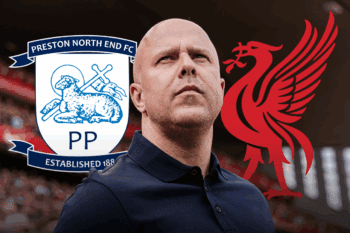


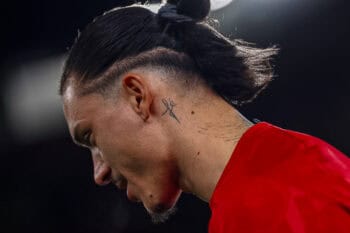
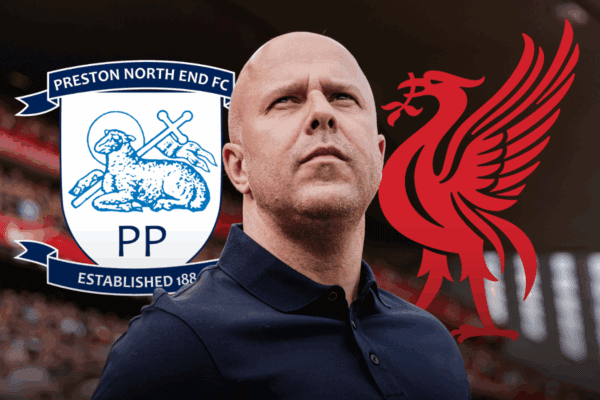

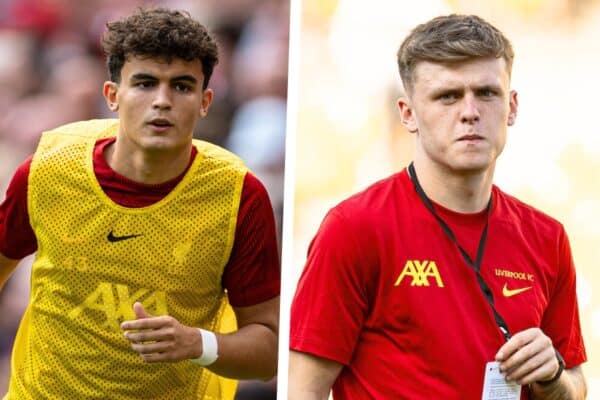

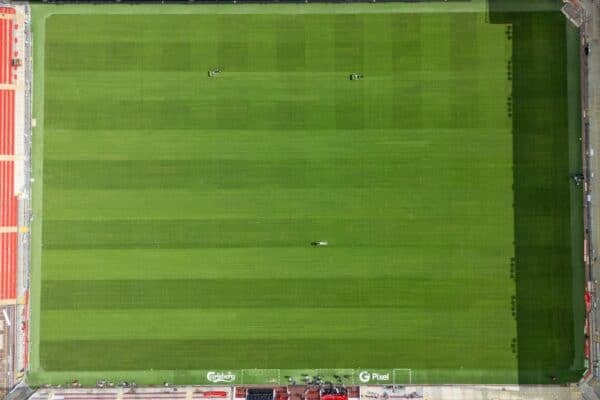
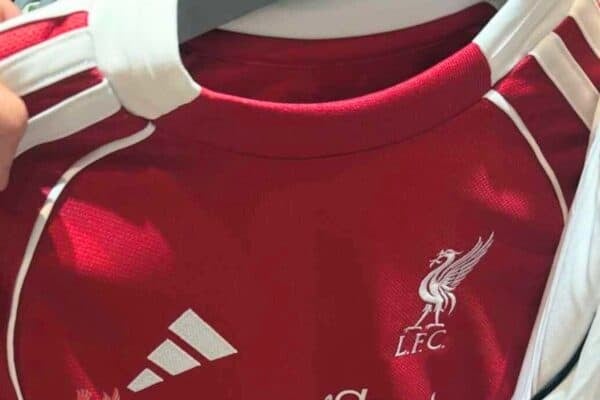
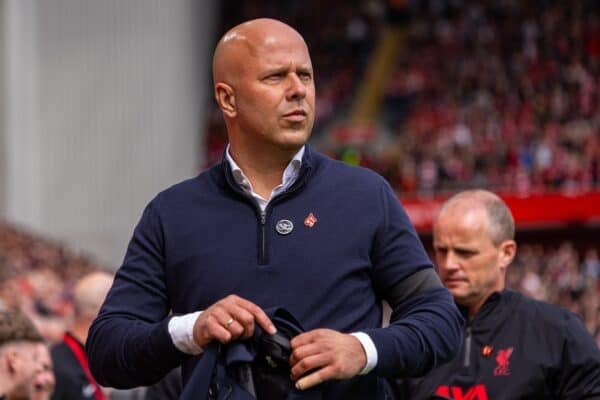
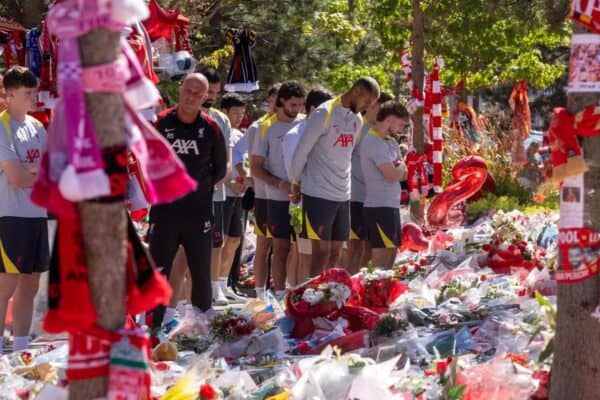





Fan Comments